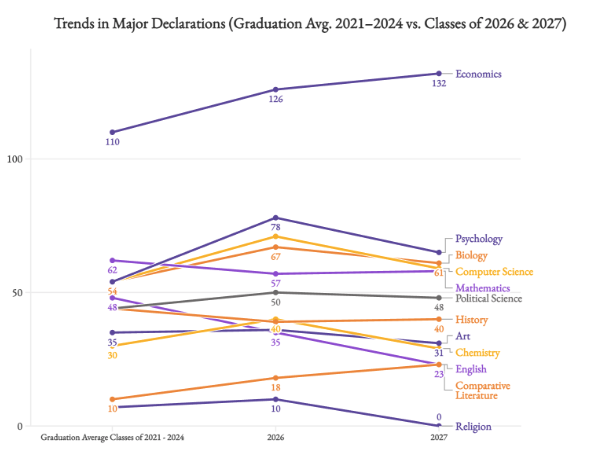Last Wednesday, Massachusetts Democratic gubernatorial nominee Jay Gonzalez proposed a tax on the endowments of the state’s largest colleges and universities, including Williams.
The plan calls for a 1.6 percent annual tax to be levied on the nine Massachusetts colleges and universities with endowments of more than $1 billion. In announcing his proposal, Gonzalez attempted to walk a fine line, trumpeting the importance of higher education while also making appeals to equity and fairness.
“They are key assets that drive our knowledge base and innovation, but for those colleges and universities who have accumulated enormous wealth, it is time to pay their fair share,” the nominee said last Wednesday.
Gonzalez’s statement and tax plan acknowledge the privileged statuses that colleges and universities hold, both in Massachusetts and nationwide, as nonprofit institutions that enjoy tax-exempt statues. The plan aims to reverse the privileged tax statuses of the nine wealthiest colleges and universities and use the revenue raised to improve education and transportation across the state. Specifically, Gonzalez empha-sized the importance of making child care and preschool affordable for all families, fully funding public schools and improving the state’s roads, bridges and public transportation systems.
The levy would apply to the College’s endowment of over $2.5 billion and would bring in over $40 million in tax revenue from the College. The Gonzalez campaign boasts that the plan could generate over $1 billion in revenue annually if the state collects the tax from all nine schools.
The College was reluctant to comment on specifics of the proposal or its potential implications, instead stressing the hypothetical nature of the tax and the school’s official position regarding political matters.
Chief Communications Officer Jim Reische spoke on behalf of the College. “Williams doesn’t comment on political races,” he said. “As everyone knows, candidates propose and promise all kinds of stuff that never comes to fruition. We want to avoid getting distracted by speculation about campaign rhetoric and instead focus on what’s real: our responsibility for educating a talented and diverse community of students.”
Reische also referred to the Association of Independent Colleges and Universities in Massachusetts (AICUM) for further information. AICUM acts as a representative for 55 of the state’s higher learning institutions and advocates for policies that benefit schools throughout the state. In response to the proposed tax, the group stressed the benefits that the state’s colleges and universities provide its residents, including generating knowledge-based growth, spending billions on research and providing thousands of jobs annually. Because AICUM views the proposed tax as an inhibitor to these gains and others, it was willing to address the tax proposal in pointed terms.
“Taxing endowments is bad for students, bad for our economy and bad for Massachusetts,” the group announced last Wednesday.
The idea behind the tax is one that has been floated before by candidates and politicians. Such proposals have been criticized by colleges and universities in the past, with many citing a number of similar arguments to attack its legitimacy.
Republican Governor Charlie Baker also opposes Gonzalez’s plan, but US Senator Elizabeth Warren, the nominee’s most high-profile backer, voiced support for the proposed tax. “[Senator Warren] strongly supports investments in affordable education and infrastructure…, and applauds Jay for starting this conversation,” the senator’s office said in a statement released last Wednesday.
The Gonzalez campaign did not respond to requests for comment.








